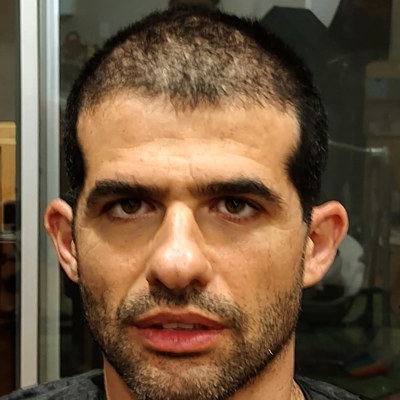
Achituv Cohen
UCSB, PhD
Actions
Dr. Achituv Cohen’s research interests lie in the fields of urban planning, accessibility and inclusion, crowdsourced geodata and spatial data mining. In his previous research, he focused on the accessibility of the urban space for visually impair pedestrians and the use of OpenStreetMap as a source of reliable geospatial data, and aims today to extend the research to other groups and crowdsourced data sources. Additionally, he works on the development of Geographic Information Systems (GIS) tools to assess pedestrian mobility in the urban environment and its relation to sustainable and equal cities. Through his research, he discovered the potential of crowdsourced data analysis to evaluate the urban spaces for vulnerable groups in respect to their needs and preferences. Dr. Cohen has published two scientific articles in the journals "Environment and Planning B: Urban Analytics and City Science" and "Transactions in GIS" over the past two years. In 2021, Dr. Cohen earned his PhD from the Technion University, Department of Transportation and Geoinformation Engineering.
Links
Simplifying OpenStreetMap Data: Reducing Multi-Lane Streets to Single Lanes
OpenStreetMap (OSM) provides detailed vector data representation of street networks worldwide, yet its level of detail can be challenging for some applications. Our research focuses on simplifying multi-lane streets into single lanes for pedestrian walkability modeling. We developed a Python tool that consolidates multi-lane streets while maintaining network continuity. Tested in Turin, Italy, our tool effectively simplifies OSM data. Our research contributes to OSM data simplification knowledge, and our tool is a valuable resource for modeling pedestrian walkability in various urban environments. https://github.com/achic19/micro_walking/tree/master/notebook/output/turin
Route Planning for Blind and Vision Impaired Pedestrians using OpenStreetMap
Millions of people around the world are visually impaired or completely blind . This group audience need to cope with many challenges on a day-to-day basis, some of which are related to traveling and exploring the urban space. Since wayfinding is mainly constructed through the visual channel, blind pedestrians experience many unique challenges from the lack of information about the space they traverse, severely restricting their mobility and independence, impairing their quality of life. In this research, we examine the possibility of using OpenStreetMap to map geospatial data relevant to blind pedestrians. This data is then used to calculate optimized walking routes that satisfy their unique preferences and requirements. An in-depth investigation, observations, and interviews with Orientation and Mobility instructors, as well as with blind people, led to a clear definition of the spatial criteria that best reflect aspects of mobility, accessibility, and safety. These include, among others, the geometric complexity of the route, the type of the route, the existence of landmarks and traffic signals along the route. Controlled iterative experiments led to the definition of weighted graph criteria, used for the development of a route calculation software that recommends the optimized route for blind pedestrians. The developed software was tested for a number of routes with blind volunteers and Orientation and Mobility instructors. The results proved that not only the routes recommended by the software were identical to the routes defined by the experienced Orientation and Mobility instructor, but also the participants noted that in most cases the route chosen by the software was more accessible and safer to walk than the route calculated by a commercial software. The findings of this research indicate that this solution is effective and useful, utilizing OpenStreetMap for the benefit of blind people, which can improve their lives in terms of mobility, accessibility, and independence, assisting them to integrate into society.
Please note that Sessionize is not responsible for the accuracy or validity of the data provided by speakers. If you suspect this profile to be fake or spam, please let us know.
Jump to top